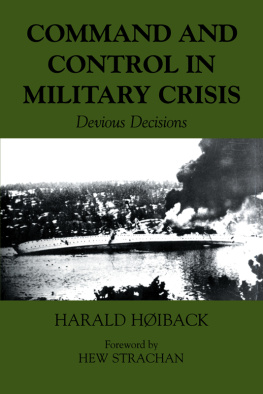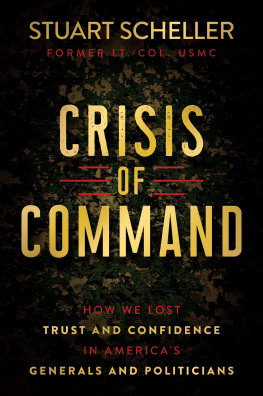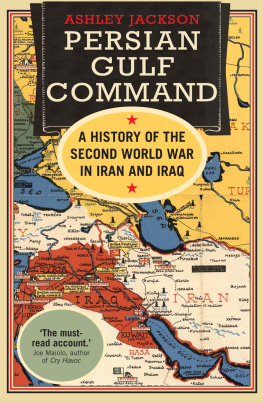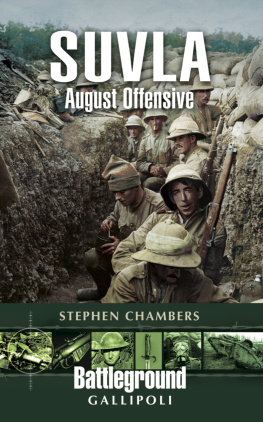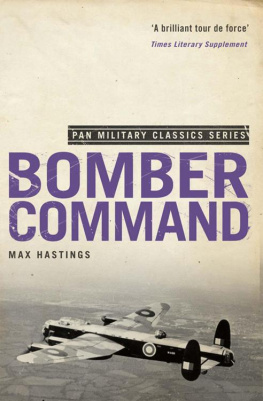
This edition is published by PICKLE PARTNERS PUBLISHINGwww.picklepartnerspublishing.com
To join our mailing list for new titles or for issues with our books picklepublishing@gmail.com
Or on Facebook
Text originally published in 1998 under the same title.
Pickle Partners Publishing 2014, all rights reserved. No part of this publication may be reproduced, stored in a retrieval system or transmitted by any means, electrical, mechanical or otherwise without the written permission of the copyright holder.
Publishers Note
Although in most cases we have retained the Authors original spelling and grammar to authentically reproduce the work of the Author and the original intent of such material, some additional notes and clarifications have been added for the modern readers benefit.
We have also made every effort to include all maps and illustrations of the original edition the limitations of formatting do not allow of including larger maps, we will upload as many of these maps as possible.
COMMAND CRISIS: INFLUENCE OF COMMAND CULTURE ON THE ALLIED DEFEAT AT SUVLA BAY
STUART K. ARCHER, MAJ, USAF
B.S., The Citadel, Charleston, South Carolina, 1985
MBA., Louisiana Technical University, Ruston, Louisiana, 1994
TABLE OF CONTENTS
Contents
TABLE OF CONTENTS
REQUEST FROM THE PUBLISHER
ABSTRACT
The IX Corps of the British Mediterranean Expeditionary Force (MEF) achieved a complete tactical surprise of the Turkish defenders with its landing on 6 August 1915. Yet, despite a huge superiority in resources and a ten-to-one advantage in men, the IX Corps failed to obtain its planned objectives. This study examines the extent that the outcome of the British failure was influenced by the prevalent British Army command culture.
The British Army command culture of 1916 was directly linked to its past as a colonial police force. Although well suited for that role, it was unable to effectively deal with the changes in warfare and the rapidly expanding sizes of armies in 1916. The British command culture of the time consisted a personalized system that exercised a reliance on a system of seniority, a hands-off method of command at the senior and operational levels, and a restrictive method of control at the tactical level.
ACKNOWLEDGMENTS
Thanks to Lt Col Stephenson for his encouragement and assistance in ensuring this was a quality product. Thanks also to Dr. George Gawyrch and Major Keith Bartsch for their excellent insight and their emphasis on quality and accuracy. And finally, many thanks to my family who, with their support and encouragement allowed me to complete this endeavor.
LIST OF ABBREVIATIONS
ADCAide-de-camp
ANZACAustralian and New Zealand Army Corps
BGBrigadier General
GHQGeneral Headquarters
MEF Mediterranean Expeditionary Force
CHAPTER 1 INTRODUCTION
The Allied Dardanelles campaign was a bold and imaginative effort to open a second and decisive front in the Great War. The campaign significantly influenced both political and military affairs in the Mediterranean and actually held the potential to influence the outcome of the entire war. Unfortunately for the Allied forces of France, Britain, and Australia, the campaign lapsed into a disastrous and humbling loss. Originally conceived as an exclusively naval expedition, the Dardanelles campaign rapidly fell into a brutal trench warfare that ended with the tremendous loss of Allied lives. During the campaign, the Allies attempted to break the three-month deadlock with a creative and ambitious amphibious assault on the Suvla Bay area of the Gallipoli peninsula. The assault at Suvla Bay was a disastrous failure and was so unsuccessful that it ultimately convinced the Allies to abandon the entire Dardanelles campaign. The losses for the Allies were staggering. During the 259 days between the first landings in April 1915 and the final withdrawal from Gallipoli in January 1916, the Allies incurred over 252,000 casualties out of the 500,000 men they committed to the campaign. {1} In the end, instead of influencing the outcome of the war, the Dardanelles became a secondary and ineffectual side effort and its only one real accomplishment was that it seriously reduced British prestige and power in the Mediterranean.
Over time, numerous authors have cited the lack of creativity, the failure to adapt, and the general mismanagement of the campaign by senior leaders as key reasons for the Allied failure. Other critical factors such as lack of adequate preparation and planning, lack of artillery, inadequate supplies, and poorly trained troops, have also been examined as root causes for the failure. However, this study will focus on the command culture, particularly influences of the British command culture on the campaigns failure. Specifically, this study seeks to determine if the campaigns failure was due to Allied commanders personal leadership and command style or were more inherent and systematic problems in the British command culture to blame? Given identical circumstances, would another British commander fared any better, or would he have been victim to the same problems that plagued the original Allied commander? This study will also briefly explore and analyze the prevailing command culture of the German-led Turkish command and its significance in the Allied defeat as a point of comparison.
The majority of the literature and research on the Dardanelles failure has centered on the initial southern peninsula landings and the ensuing months of unimaginative and unsuccessful methodical assaults against strong Turkish defenses. In contrast, this study will focus on the unsuccessful Suvla Bay landing and the inability of the Allies to end the peninsula deadlock. The Suvla Bay operation is of critical importance to the campaign because of its unique potential to break the stalemate and allow the Allies to obtain their original objectives. A critical analysis of the Suvla Bay operation is also important because the landings were an innovative amphibious assault against an unprotected enemy flank that caught the Turks and their German commanders in complete surprise. Further, Allied and German/Turkish leadership and strategy in the Suvla Bay landing needs to be examined to determine to what extent the conduct of both the Allied and German commanders contributed to the Allied defeat.
This analysis of the leadership during the Suvla Bay landings will focus on the British and German command cultures of the early 1900s. Culture can be defined as the sum total of ways of living built up by a group of human beings and transmitted from one generation to another {2} Cultures, according to sociologist William Levin, typically contain four elements: (1) they are learned from previous generations; (2) ideas and concepts are broadly shared by members; (3) cultures are adaptive to the conditions in which people live in; (4) are symbolic in nature, certain symbols represent order and assist individuals in making sense of their world. {3} Command may be defined according to Joint Publication 1-02 as, The authority that a commander in the Armed Forces lawfully exercises over subordinates by virtue of rank or assignment. Command includes the authority and responsibility for effectively using available resources and for planning the employment of, organizing, directing, coordinating, and controlling military forces for the accomplishment of assigned missions. It also includes responsibility for health, welfare, morale, and discipline of assigned personnel. {4} Therefore, for the purposes of this study, command culture is defined as a body of thought or way of life shared by members of an institution and passed on to succeeding generations. Command culture contains the general essence of conduct, principles, and guidelines that exist within the command structure of a military establishment. It is the refinement of thought, habits and skills which reside in an institution and involves the practice of leadership and the interaction of commander and subordinate. Command culture establishes general standards for the organizing, directing, coordinating, and decision making of the organizations command structure. With this definition, this study will seek to determine to what extent the command cultures played in influencing the thought, conduct, and decision making of the senior commanders of both the British and Turkish armies.




